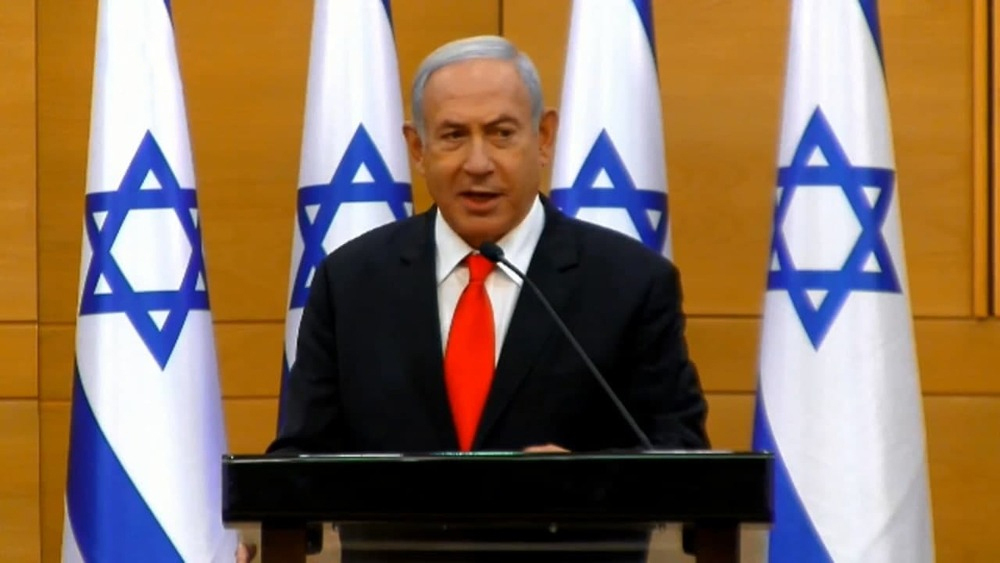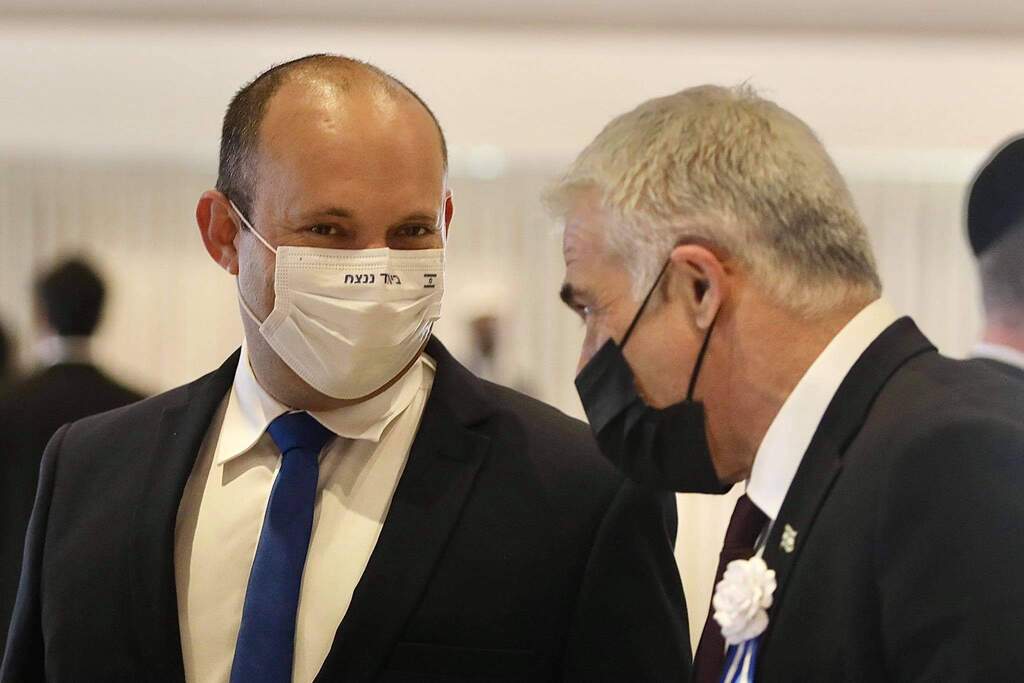Getting your Trinity Audio player ready...
Prime Minister Benjamin Netanyahu on Monday expressed support for a direct election for the premier as a way of ending Israel's two-year cycle of inconclusive elections and to prevent a potential fifth national vote since April 2019.
Netanyahu is also two weeks into a four-week window to form a coalition government in the wake of Israel's March 23 elections, a mission that has proven to be elusive.
2 View gallery


Prime Minister Benjamin Netanyahu addressing his Likud faction in the Knesset on Monday
(Photo: Knesset Channel)
He has just two more weeks to cobble together a government before President Reuven Rivlin hands the task to another lawmaker - and is struggling to unite his allies into a 61-MK majority.
"There is a solution to the political mess and a huge majority of the public supports it," Netanyahu told a meeting of his Likud party's Knesset faction.
"Instead of forming absurd governments, for example with a prime minister who received only seven seats in the election, there will be direct elections for prime minister," he said, alluding to Naftali Bennett, who is said to be mulling a rotation agreement with Opposition Leader Yair Lapid.
Bennett's far-right Yamina party won just seven seats in the March vote, while Lapid's Yesh Atid pulled in 17 seats.
While Likud's 30 Knesset seats makes it the largest party, Netanyahu is still unable to secure the 61 seats he needs for a majority government. And on Monday he appeared to be focusing on cajoling Bennett, with whom he has had several meetings about joining a new Netanyahu government.
"Today is also a moment of truth for Naftali Bennett," Netanyahu said in televised remarks.
"He pledged not to sit under Lapid with [left-wing parties] Meretz and Labor, with the support of the [predominantly Arab] Joint List. Therefore, he must stop this gallop towards a left-wing government together with Lapid, Meretz and Labor," the prime minister said.
2 View gallery


Naftali Bennett, left, and Yair Lapid at the opening of Knesset earlier this month
(Photo: Marc Israel Sellem)
The proposal for a direct election for prime minister came from Netanyahu ally Aryeh Deri, the head of the ultra-Orthodox Shas party. Israel has in the past held a handful of direct votes for the prime minister, but scrapped the measure after Ariel Sharon was elected in 2001.
Deri on Monday urged MKs to support the proposal, saying that he sees "no other solution."
"We are headed towards a fifth election that will also end in a deadlock," Deri told his party's Knesset faction. "This proposal does not change the state or the rules. It only helps in finding a solution to the impasse."

